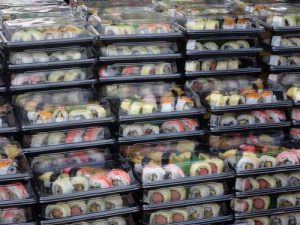 In Europe, thermoform packaging is using more and more RPET content, but impediments remain to efficient recycling of the thermoforms themselves. A workshop recently discussed the issues.
In Europe, thermoform packaging is using more and more RPET content, but impediments remain to efficient recycling of the thermoforms themselves. A workshop recently discussed the issues.

 In Europe, thermoform packaging is using more and more RPET content, but impediments remain to efficient recycling of the thermoforms themselves. A workshop recently discussed the issues.
In Europe, thermoform packaging is using more and more RPET content, but impediments remain to efficient recycling of the thermoforms themselves. A workshop recently discussed the issues.
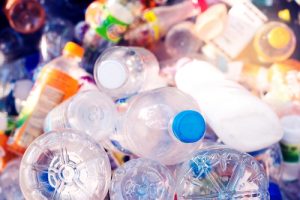 For years, a European Union panel has given its thumbs up to using recycling processes to generate food-contact recycled plastics, but those opinions aren’t official government “approvals.” Some groups say the lack of official authorization from the European Commission has lead to damaging uncertainty for the industry.
For years, a European Union panel has given its thumbs up to using recycling processes to generate food-contact recycled plastics, but those opinions aren’t official government “approvals.” Some groups say the lack of official authorization from the European Commission has lead to damaging uncertainty for the industry.
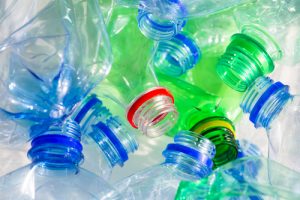 PET depolymerization company Loop Industries has agreed to purchase a 150,000-square-foot site for its first manufacturing facility.
PET depolymerization company Loop Industries has agreed to purchase a 150,000-square-foot site for its first manufacturing facility.
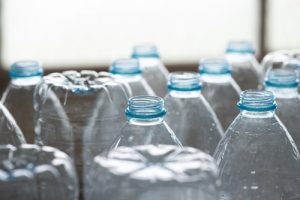 California lawmakers have revised the state’s definition of PET to exclude PETG, meaning products made from the glycol-modified plastic are barred from using resin code No. 1.
California lawmakers have revised the state’s definition of PET to exclude PETG, meaning products made from the glycol-modified plastic are barred from using resin code No. 1.
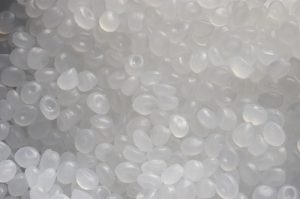 M&G, one of the world’s largest producers of virgin PET for packaging, has shut down production plants. Market repercussions from the move could mean higher prices for recycled material.
M&G, one of the world’s largest producers of virgin PET for packaging, has shut down production plants. Market repercussions from the move could mean higher prices for recycled material.
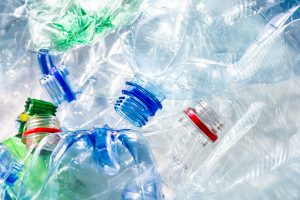 The U.S. PET bottle recycling rate dropped from 30.1 percent to 28.4 percent in 2016, a number that is emblematic of several concerning trends hitting the sector.
The U.S. PET bottle recycling rate dropped from 30.1 percent to 28.4 percent in 2016, a number that is emblematic of several concerning trends hitting the sector.
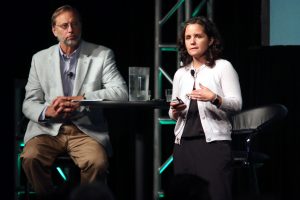
Nina Bellucci Butler speaks at the Resource Recycling Conference.
U.S. and Canadian end users could consume more of the recovered plastics generated domestically if prices and specifications meet their needs. But a handful of converging market trends are standing in the way of significant growth.
 Manufacturers will voluntarily subsidize post-consumer carpet sortation for an additional year.
Manufacturers will voluntarily subsidize post-consumer carpet sortation for an additional year.
 The extended producer responsibility program for packaging in Portugal has seen improving recovery volumes in recent years.
The extended producer responsibility program for packaging in Portugal has seen improving recovery volumes in recent years.
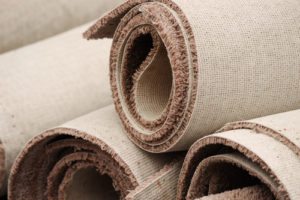 California regulators are threatening to bring the hammer down on a carpet stewardship group, saying it has failed for years to grow carpet recycling.
California regulators are threatening to bring the hammer down on a carpet stewardship group, saying it has failed for years to grow carpet recycling.
